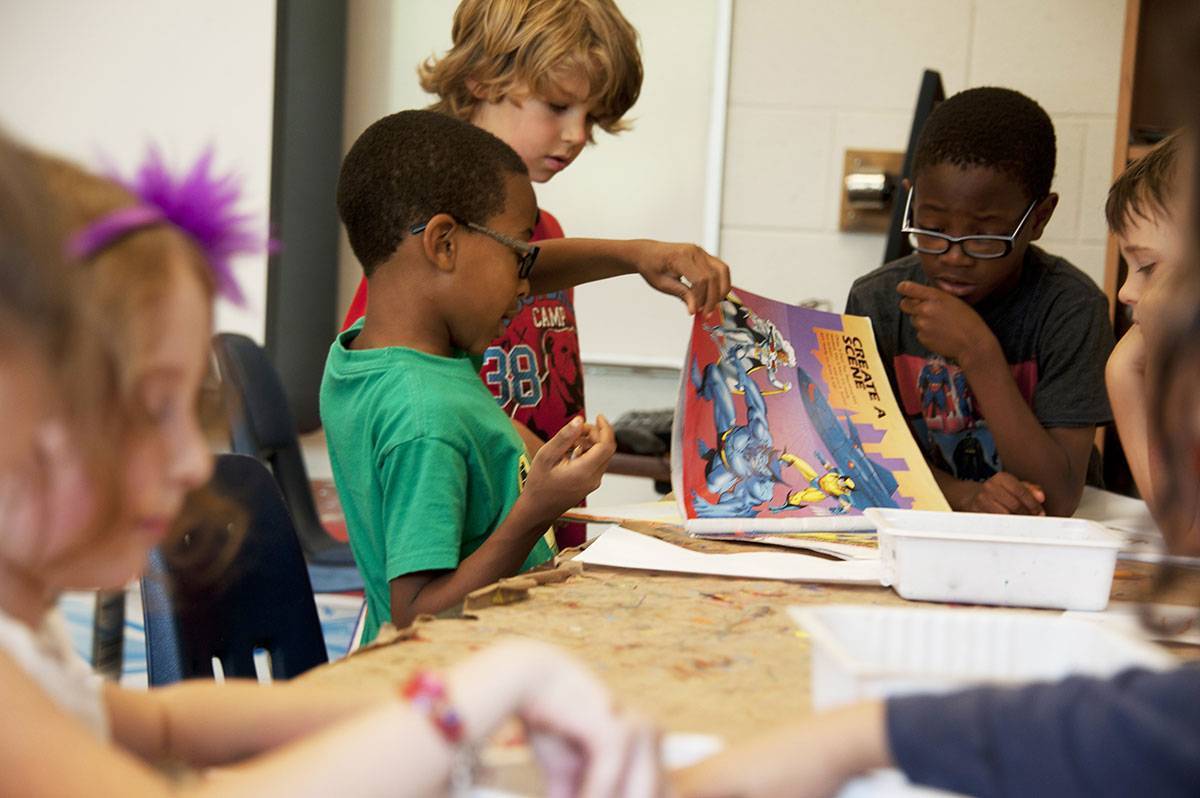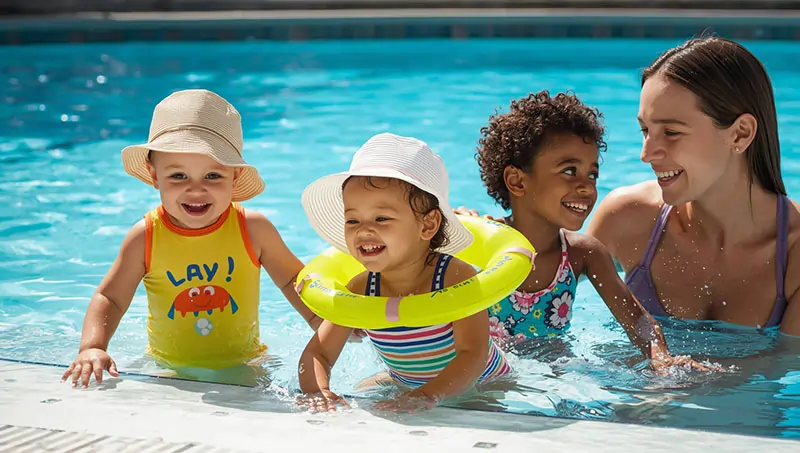5 Tips To Teach A Child To Make Friends In School

Kids seem to have busier schedules these days. After all, they’re constantly shuffling from one activity to another. Some of them have a natural knack for navigating social situations. Others, not so much.
Building friends crucially depends on the social competence, self-regulation, and emotions skills of a child. It is a deeply personal endeavor, and the child will learn a lot about what it takes to effectively navigate any social situation and make new friends through their own experience.
But that doesn’t mean that you can’t help them through it as a parent. As a parent, you play a very important role in the development of your child’s social skills. Some children are anxious, or shy, and this can affect their ability to make new friends. You can help them learn how to respond to different situations, and better manage their anxiety.
There are also children that have low impulse control, which can cause them to behave in antagonistic ways toward others. In such a case, it might help to teach them better self-control.
Whatever the unique situation of your child, there are ways you can help. In this article, we shall explore different parenting tips that you can use to teach your child to make friends in school.
1. Parent your child with warmth and respect
The first step to helping your child make positive friendships is to parent them in the right way. The way a parent treats their child has a significant impact on the emotional development of that child and their social behavior.
For example, parenting that emphasizes absolute obedience and attempts to control the child through punishments, shaming, or threats, can lead to developmental problems in the child, which will make it more difficult for the child to make friends. The same applies to psychological manipulation techniques, such as withdrawing affection or guilt tripping the child.
On the other hand, showing warmth and respect to your child, reasoning with them over why certain rules exist and showing them affection can make them more social as they grow up. They will then extend that same warmth and respect to their peers.
2. Coach your child emotionally
All of us will experience selfish impulses and negative emotions at some point or other. That doesn’t stop us from starting and maintaining good friendships, however, so long as we know how to keep those emotions and impulses under control.
Your child is in dire need of learning how to control their own impulses and emotions. As a parent, you can help them do that. How you respond to the negative emotions of your child will have a significant impact on how they learn to deal with those emotions. If you talk to your child in a sympathetic but constructive tone about how to cope with their negative emotions, they will learn to self-regulate those emotions. In the process, they will also learn to develop positive friendships with their peers.
On the other hand, if you dismiss your child’s emotions or punish them for feeling the way they do, they will develop poor self-regulation and poor friendships as a direct consequence of this.
It’s worth taking the time to listen to and understand your children’s feelings, as well as teach them how to handle those feelings in a way that is constructive and healthy. That way, they will take those lessons and apply them in social situations, making better friends as a result.
3. Teach your child to empathize
Empathy is a powerful thing to cultivate. Practically speaking, it gives one mind-reading abilities. For your child, it doesn’t end at being able to understand and handle their own feelings. They should also be able to understand the emotions of others and see things from their perspective.
These things don’t come naturally. Instead, they require constant nurturing, encouragement, and support from the parent. Teach your child to empathize, so they will be better placed to understand why others act the way they do by understanding how they feel. They will also be able to inspire the right feelings in others that are prerequisites for healthy and lasting friendships.
4. Provide a secure social environment for anxious children
Anxious children have an especially hard time making friends. To counter that, you will have to be responsive and sensitive to them. You need to let your child know that you will be there for them when they need you. This kind of parenting helps them to develop secure attachment relationships with you that help to promote feelings of confidence and independence in them.
If your child is extra anxious, then you will need to provide them with extra support. For example, if a child feels especially threatened by the world, you will need to address it, lest they continue to experience emotional issues that deter them from making friends.
A good step in the right direction is to talk to their school counselor or a pediatrician about the child’s problems. There are lots of treatments that can help with these issues, including cognitive behavioral therapy.
Sometimes you will have to change the child’s environment to help them deal with their anxiety. If they are in an aggressive environment where bullying happens a lot, you should take action to stop bullying and harassment. It may also involve teaching them to be more assertive and to stand up for themselves, as well as finding new social outlets for them that are more secure and welcoming.
5. Address your child’s aggressive behavior problems
Sometimes it is your child that is the aggressive and disruptive one, which can seriously affect their ability to make friends. In that case, you will have to address their behavior. This may involve teaching them impulse control, as outlined in tip #2 above. You may also have to talk to a counselor or pediatrician to help with the right kind of therapy.
Conclusion
While your child will have to learn a lot about making friends on their own, you also have a crucial role to play. By following the tips above, you can help them be more adept at navigating social situations, and much better at making friends.
Author Bio: Michael Gorman is a highly skilled freelance writer and proofreader from the UK who currently works at Essay Writers, an Australian assignment help and assignment writing firm. Being interested in everyday development, he writes various blog posts and discovers new aspects of human existence every day.


